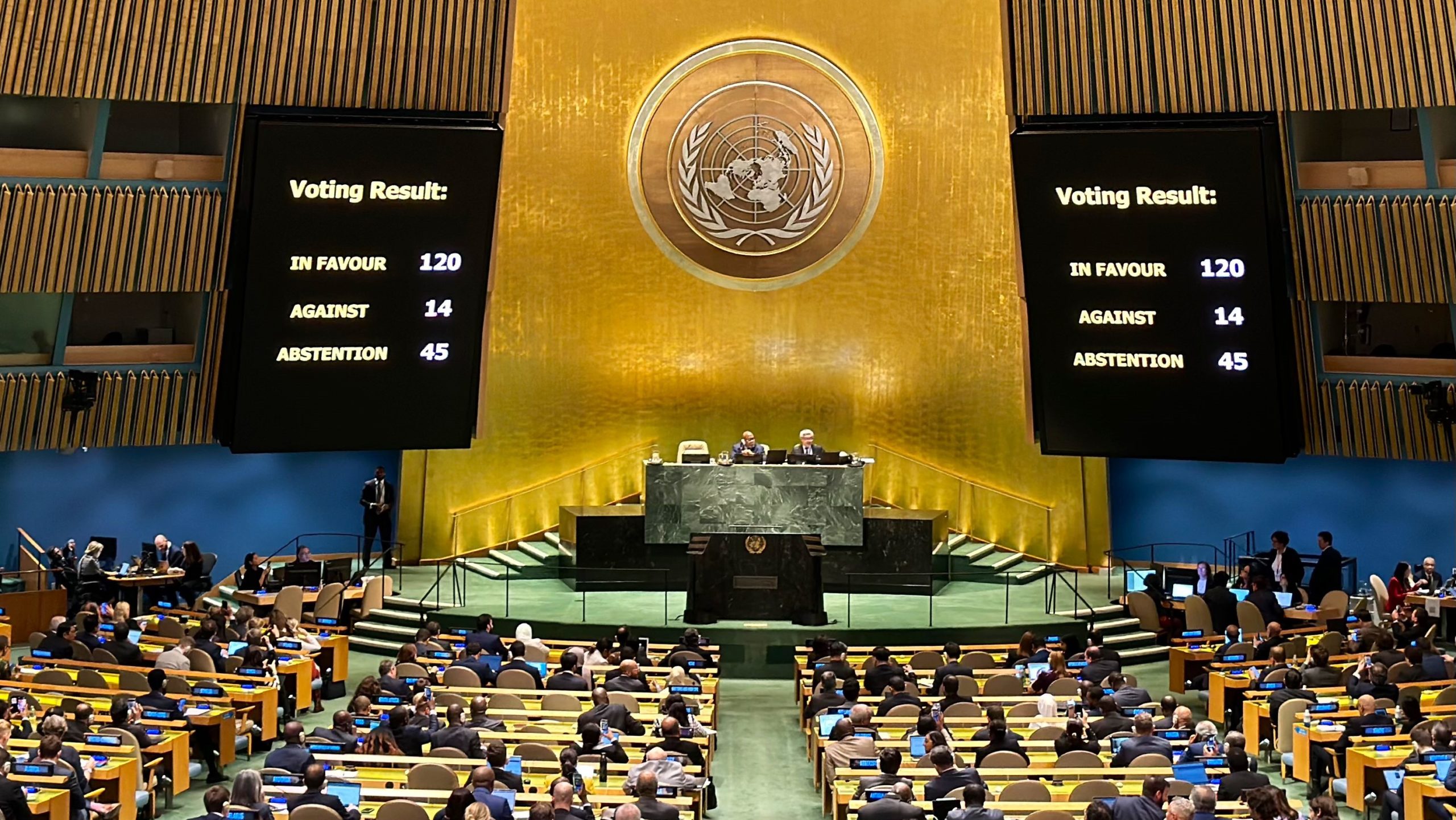The United Nation General Assembly is meeting on Tuesday, December 12 in an emergency session to discuss the Israeli war in Gaza. This is after Egypt and Mauritania jointly invoked the rarely-used resolution 377 A (V) on Monday.
The move follows the failure of the UN Security Council last week to adopt a resolution calling for a ceasefire in Gaza due to a US veto.
The Uniting for Peace resolution was invoked by Egypt as the chair of the Arab group in the UN and Mauritania as the chair of the Organization of Islamic Cooperation.
The resolution was first adopted by the General Assembly in November 1950 during the Korean War making itself an alternative platform to work for peace in case the permanent members of the Security Council fail to execute the fundamental task of the international body.
The resolution says, “If the Security Council because of lack of unanimity of the permanent members, fails to exercise its primary responsibility for the maintenance of international peace and security in any case where there appears to be a threat to peace, breach of the peace, or act of aggression the General Assembly shall consider the matter immediately with a view to making appropriate recommendations to members for collective measures, including…. the use of armed forces when necessary.”
The members of the General Assembly are expected to vote on a resolution demanding immediate ceasefire in Gaza and release of all hostages by the Palestinian resistance groups.
Same fate as Article 99?
There is no guarantee that a General Assembly vote would lead to peace in Gaza. The resolution would only be a recommendation and will have no legal validity. It is highly unlikely that it would contain any recommendation invoking punitive measures against Israel although it is possible under resolution 377 A (V).
Israel already rejected a resolution by the General Assembly demanding a ceasefire in November. Over 100 countries voted in favor of the resolution.
Last Wednesday, the United Nation Secretary General Antonio Guterres invoked article 99 of the UN charter asking the Security Council to urgently take up the issue, claiming the situation in the occupied Palestinian territories may “aggravate existing threats to maintenance of international peace and security.”
Article 99 of the UN charter gives the Secretary General the privilege to “bring to the attention of the Security Council any matter which in his opinion may threaten the maintenance of international peace and security.”
Guterres had reasoned that the situation in Gaza is getting worse with each passing day of Israeli bombardment and “facing a severe risk of collapse of the humanitarian system” there.
The Israeli bombardment and ground offensive since October 7 has killed over 18,000 Palestinians and injured close to 50,000. More than 1.9 million of its 2.2 million population is displaced amid a severe lack of drinking water, food, medicine, and fuel.
Guterres’ invocation of article 99 was a rare move. This was for the first time since 1989 that any Secretary General had invoked the article. Prior to Wednesday, it had been invoked only four times since the UN was formed.
However, when the Security Council met on Friday, it failed to adopt a resolution supported by 13 other members because the US decided to exercise its veto power. The US claimed that the provisions of the draft resolution demanding immediate ceasefire and release of all hostages was “divorced from reality.”
On Sunday, Secretary General Guterres reiterated that he will continue to push for a ceasefire in Gaza. “I urged the security council to press to avert a humanitarian catastrophe and I reiterated my appeal for a humanitarian ceasefire to be declared. Regrettably the Security Council failed to do it, but that does not make it less necessary” he said speaking during the Doha Forum.
However, given the strong support the US and its European allies, the UK and France, have extended to Israel’s war in Gaza, there is no reason to believe that UN resolutions, even if adopted, will force Israel to stop the war in the coming days.





